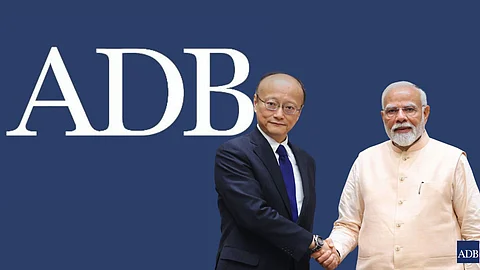

India has strongly objected to the Asian Development Bank’s (ADB’s) decision to approve a hefty $800 million financial package for Pakistan, warning that the funds could be misused and may not deliver the reform outcomes intended. This pushback came during a recent ADB Board meeting, where India abstained from voting on the proposal.
The ADB cleared the amount as part of a policy-based loan programme aimed at strengthening fiscal sustainability and improving public financial management in Pakistan.
The Bank’s country director Emma Fan acknowledged what she called “significant progress” in Pakistan’s macroeconomic framework. But India wasn’t buying it.
Indian officials have questioned the very logic of continued bailouts. They pointed out that if earlier programmes funded by the ADB and the International Monetary Fund (IMF) had truly succeeded in stabilising Pakistan’s economy, there would be no need for another one—this being the 24th IMF bailout Pakistan has approached for.
At the IMF’s meeting in May to review its $1 billion lending plan for Pakistan, India had also abstained, raising similar alarms about the potential diversion of funds, particularly towards state-sponsored cross-border terrorism.
Indian representatives raised eyebrows at what they called troubling fiscal trends. According to them, Pakistan’s tax-to-GDP ratio has dropped from 13% in 2018 to just 9.2% by 2023—a significant fall at a time when the country’s defence spending has reportedly gone up.
This mismatch, officials said, raises suspicions about how funds from international financial institutions are being used. Since policy-based loans are fungible, there’s always the risk that money earmarked for reforms ends up funding unrelated—and potentially controversial—government expenditures.
There’s also unease about Pakistan’s growing reliance on external funding. Indian officials said that real economic reform in Pakistan has often come not from within but under pressure from international lenders like ADB and IMF. This external push, they argue, may undermine local accountability and create a habit of seeking bailouts instead of pursuing tough homegrown policies.
A senior source said that India expects ADB to tighten the screws on implementation and closely monitor how the money is spent. “Pakistan’s track record doesn’t inspire confidence,” the source added.
India’s concerns aren’t limited to economics. The timing of ADB’s assistance comes weeks after the Pahalgam terror attack on April 22, in which 26 civilians were killed. India subsequently launched ‘Operation Sindoor’—a crackdown it claims was aimed at eliminating cross-border terror threats.
Sources say India also flagged Pakistan’s slow pace in fulfilling key Financial Action Task Force (FATF) commitments, especially those tied to curbing terror financing and prosecuting leaders of UN-listed terrorist groups.
While India stopped short of blocking the aid, its abstention from voting at both the ADB and IMF boardrooms appears to be a deliberate move to register its discontent—without completely disrupting the multilateral consensus.